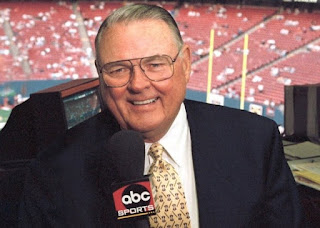Robert Burns Hunter, who passed away earlier this week at the age of 78, was a throwback and a visionary at the same time. As a lyricist who wrote songs to be sung by someone other than himself, he worked in the great tradition of Lorenz Hart, Sammy Cahn, Oscar Hammerstein, and rock & roll's own Jerry Leiber. But he also delivered his songs, co-written mostly with his best friend Jerry Garcia, specifically for performance by one of the most innovative, unpredictable, and musically challenging bands of the last century, the Grateful Dead. Though he professed himself often astonished by the tunes Garcia and the band chose to frame his words, Hunter had a poet's gift for rhythm, for emphasis, and for timing. The Dead's songs, which unabashedly celebrated American exceptionalism while also humorously poking holes in its paper facade, were a lot more, well, interesting-- and provocative-- thanks to Hunter's contributions.
He was a prolific writer and poet who produced a lot more than just Grateful Dead tunes; on several occasions he formed his own backup group and took his songs on the road, singing them in his earnest, sometimes strained, everyman voice. We remember a two-man folkie-type show in spring 1979 at the Other End in New York; we also remember a time he rehearsed what he hoped would be a full-blown stage musical, complete with sets and chorus girls. As the Dead's cult-like popularity became something of an albatross, the publicity-shy Hunter may have been hoping to extricate himself from its burdens by branching out into other forms. But over time, his obvious gifts led him to work with just about everybody; to cite just one example, Bob Dylan's wonderful "Together Through Life" (2009) is almost entirely co-written with Hunter.
Geoffrey Himes at Paste magazine has written a fine and fitting tribute to the man; it can be found here. The article is worth reading if only for the hilarious anecdote on how the key line in the Dead's signature tune, "Uncle John's Band," came to be.
Robert Hunter's best-remembered lyrics came during that amazingly fertile period from 1970-1977 when he and Garcia (and occasionally Bob Weir) wrote the Dead's most beloved songs. There are so many, it would be hopeless to list them. But one thing both he and Garcia noted at the time was that this golden age came about when Hunter learned how to phrase his lyrics to fit the way the band played. Perhaps the ideal blend was the serendipitous composition of "Terrapin Station," certainly among the more complex and challenging of Hunter's pieces, yet one that fit perfectly into Garcia's theme. In that song, Hunter writes, and Jerry sings,
The storyteller makes no choice,
Soon you will not hear his voice--
His job is to shed light, and not to master.
At his best, Robert Burns Hunter did both.





